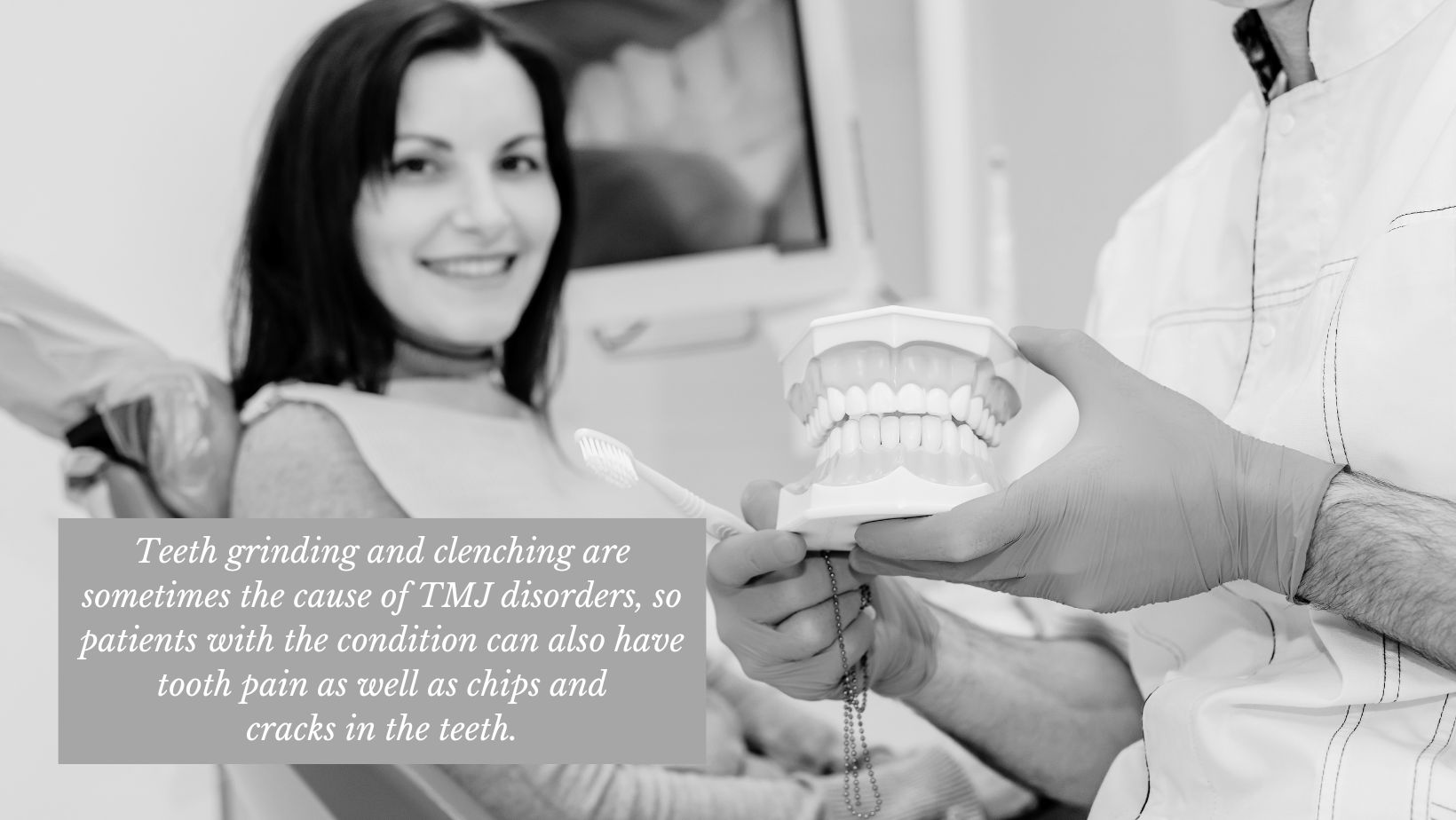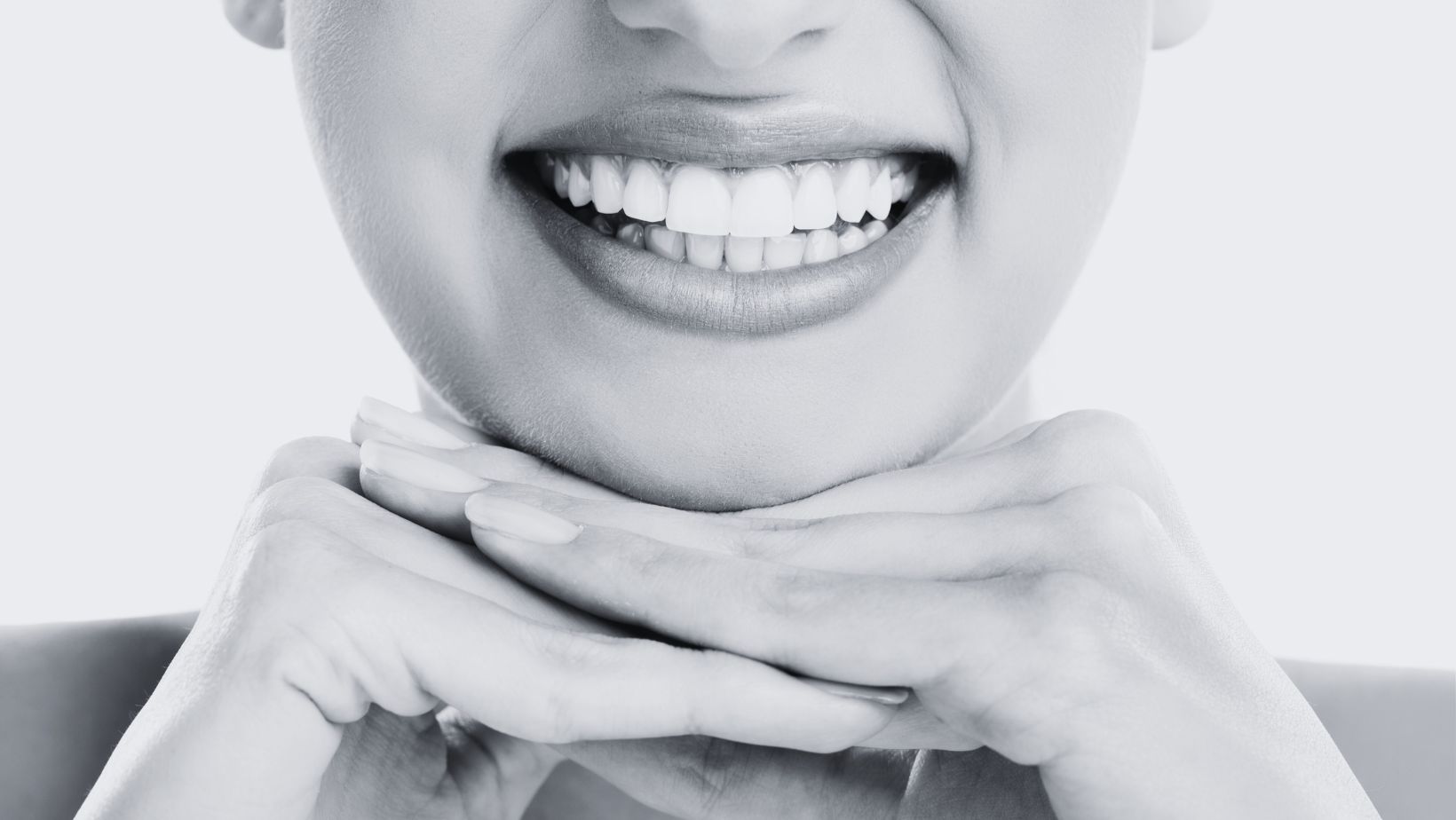Do you have pain in the jaw when you open your mouth? It could indicate a problem with your temporomandibular joints, or TMJ, which are located on each side of your face. These joints work as a hinge to open and close the mouth, so problems with TMJ feel like there is tension keeping the jaws from opening all the way, or like something is getting caught.
Because the movement of joints involves muscles and nerves, there are other symptoms besides pain that TMJ disorders cause. Likewise, some symptoms can be mistaken for TMJ dysfunction (TMD) when they are actually indications of another condition. Find out if you should worry about your jaw discomfort, and when to see a dentist.
Symptoms of TMJ Dysfunction
Everyone has temporomandibular joints, connecting their jaw to their skull. So if someone says they suffer from TMJ, what they actually mean is that they have a TMJ disorder or TMJ dysfunction. These problems occur when the joint’s cartilage is damaged or begins to erode.
The main symptom that leads people to suspect they have a TMJ issue is pain and tenderness in the jaw. But the inflammation and muscle tension caused by a TMJ disorder can also lead to pain in other areas and may cause other neurological effects. Patients with TMJ problems often experience:
- Ringing in the ears (tinnitus) and earaches
- Pain in one or both ears when chewing
- Facial pain
- Headaches
- Pain in the upper back and neck
- Dizziness and balance problems
- Tingling or numbness in the fingers
- A clicking or popping sound when chewing or opening the mouth
Teeth grinding and clenching are sometimes the cause of TMJ disorders, so patients with the condition can also have tooth pain as well as chips and cracks in the teeth.

What Other Conditions Does TMJ Feel Like?
When jaw pain is accompanied by symptoms like facial pain, earaches, and headaches, it could have to do with a TMJ problem. But sometimes, other conditions can cause similar symptoms.
Migraine or Cluster Headaches
Headaches that originate on the sides of the face or around the temples are often severe and can be mistaken for TMJ dysfunction.
Sinusitis
Sinus pain and pressure can be felt around the temples, just like TMJ. But a sinus infection is usually accompanied by fever and thick nasal discharge.
Ear Infection
An ear infection can cause intense pain in or around the ear, similar to pain that radiates from the jaw with TMJ issues.
Trigeminal Neuralgia
Trigeminal nerves control the jaw, and are located on either side of the face. When these nerves become irritated, patients feel pain in the teeth, face, and ear, along with numbness or tingling on one side of the face. However, Trigeminal Neuralgia is different from what TMJ feels like, as it is characterized by a feeling of electric shock.
Abscessed Tooth
When a tooth becomes infected or abscessed, it causes persistent pain while chewing. If left untreated, swelling and infection can extend into the lymph nodes, neck, and jaw, causing a sensation similar to TMJ pain. Patients with a sore tooth, a fever, and a red bubble on the gum filled with pus should seek dental help immediately.
When to Seek Help for Symptoms of TMJ
If you have severe and persistent pain or tenderness in your jaw and can’t open your mouth completely, make an appointment to see a dentist. He or she will feel your jaw and observe the range of motion as you open and close your mouth. They will also press on areas around the jaw to identify where the pain is coming from.
If a TMJ problem is suspected, the dentist will order X-rays, a CT scan, or an MRI. Depending on the severity of your case, you may be referred to a medical doctor or a TMJ specialist for treatment.
In most cases, the discomfort associated with TMJ disorders can be relieved with self-managed care, such as sleeping on your back, applying hot or cold compresses, jaw exercises, anti-inflammatory medicines, and avoiding chewy or crunchy foods. Since teeth grinding is often a cause of TMJ pain, wearing a mouthguard at night may be a solution. Sometimes, Invisalign can help if TMJ issues are caused by an alignment problem.
Surgery is used as a last resort to treat TMJ pain and is only necessary in less than 20% of cases.
To discuss symptoms of TMJ with a dentist in your area, use our online search tool to find a dentist and make an appointment.


